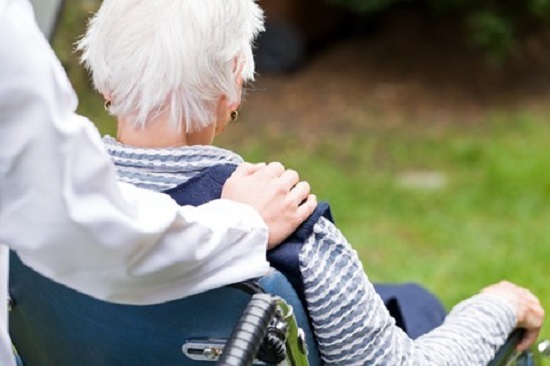‘1 in 4 elderly unaware of early signs of dementia’
By Kim Da-solPublished : April 19, 2017 - 15:24
Years before signs of dementia became evident, Yang Min-ju’s mother became confused and delusional.
Her mother would pack her luggage, saying her parents were waiting for her to come home. The symptoms gradually worsened, until Yang had to feed her mother and change her diaper every hour.
“I thought she was just becoming old,” Yang told The Korea Herald.
Like Yang, about one quarter of dementia patients miss the opportunity to receive timely treatment and care because they are unaware of the early symptoms, recent data shows.
According to the study released Wednesday by the Health Insurance Review and Assessment Service, approximately 685,000 senior citizens aged 65 or older in South Korea were suffering from dementia last year. Of these, 25 percent, or 168,000, failed to recognize the signs of their condition until they reached full-fledged dementia.
The National Institute of Dementia projects that about 2.7 million people aged 65 or older will be diagnosed with dementia by 2050. The figure would be about 15 percent of the age group.
Senile dementia is caused by various factors, but the most common is Alzheimer’s disease.
Her mother would pack her luggage, saying her parents were waiting for her to come home. The symptoms gradually worsened, until Yang had to feed her mother and change her diaper every hour.
“I thought she was just becoming old,” Yang told The Korea Herald.
Like Yang, about one quarter of dementia patients miss the opportunity to receive timely treatment and care because they are unaware of the early symptoms, recent data shows.
According to the study released Wednesday by the Health Insurance Review and Assessment Service, approximately 685,000 senior citizens aged 65 or older in South Korea were suffering from dementia last year. Of these, 25 percent, or 168,000, failed to recognize the signs of their condition until they reached full-fledged dementia.
The National Institute of Dementia projects that about 2.7 million people aged 65 or older will be diagnosed with dementia by 2050. The figure would be about 15 percent of the age group.
Senile dementia is caused by various factors, but the most common is Alzheimer’s disease.

But, awareness for early screening for dementia is very low here.
A separate survey by the Korean Senior Citizens’ Association found that 65 percent of seniors were unaware the National Health Insurance covered dementia tests. Of the surveyed 1,000 seniors, 54 percent said that they did not know that they could be tested for senile dementia at some 255 public health centers across the nation.
While awareness remains low among seniors, experts say early detection is the best way to prevent dementia.
“There is no major progress (of treatment after a diagnosis.) A lot of families get discouraged as it does more than cause a single person to suffer,” said Kim Yoo-jung, an official from the National Institute of Dementia.
“That is why it is important to detect the symptoms early, but many mistake early signs of dementia as part of the aging process,” she added.
Kim said there is an urgent need for the government to help families who suffer the burden of caring with insufficient state support.
With the number of dementia patients rising, the government released in 2015 a set of comprehensive plans to reduce the financial burden for caregivers.
“Dementia is different from many other diseases in that it requires long-term care and affects the patient‘s entire family,” said Lee Jae-yong, an official in charge of elderly policies at the Ministry of Health and Welfare.
Earlier this month, the Health Ministry announced a plan to run the country’s first villages reserved for people suffering from dementia and their families.
Three designated villages will open in May, in an aim to create a community where dementia sufferers and their families can live safely without leaving society and becoming isolated, the ministry said.
By Kim Da-sol (ddd@heraldcorp.com)








![[Kim Seong-kon] Democracy and the future of South Korea](http://res.heraldm.com/phpwas/restmb_idxmake.php?idx=644&simg=/content/image/2024/04/16/20240416050802_0.jpg&u=)








![[KH Explains] Hyundai's full hybrid edge to pay off amid slow transition to pure EVs](http://res.heraldm.com/phpwas/restmb_idxmake.php?idx=652&simg=/content/image/2024/04/18/20240418050645_0.jpg&u=20240418181020)

![[Today’s K-pop] Zico drops snippet of collaboration with Jennie](http://res.heraldm.com/phpwas/restmb_idxmake.php?idx=642&simg=/content/image/2024/04/18/20240418050702_0.jpg&u=)